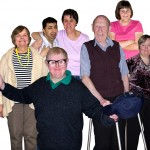
There are more and more examples of mainstream mental health services supporting people with learning disabilities when they have mental health problems. The authors of this cross sectional study were keen to explore whether the attitudes of staff in mainstream mental health services towards people with learning disabilities was in any way negative and whether [read the full story…]





